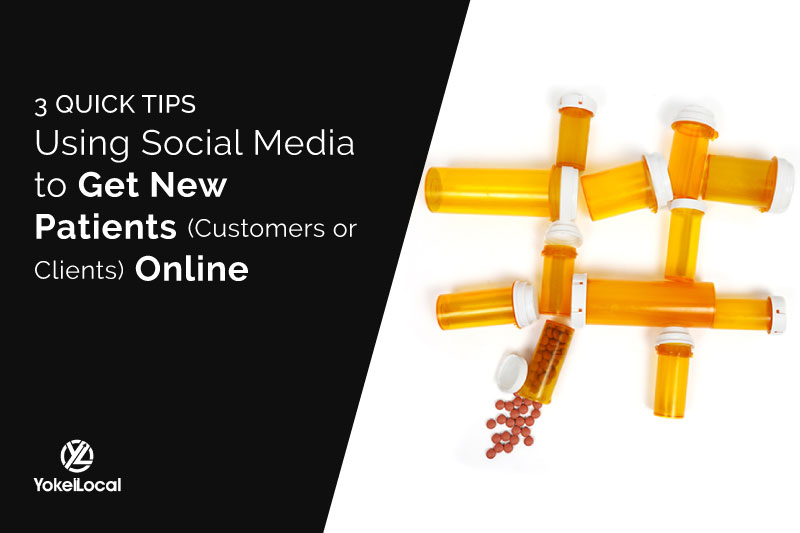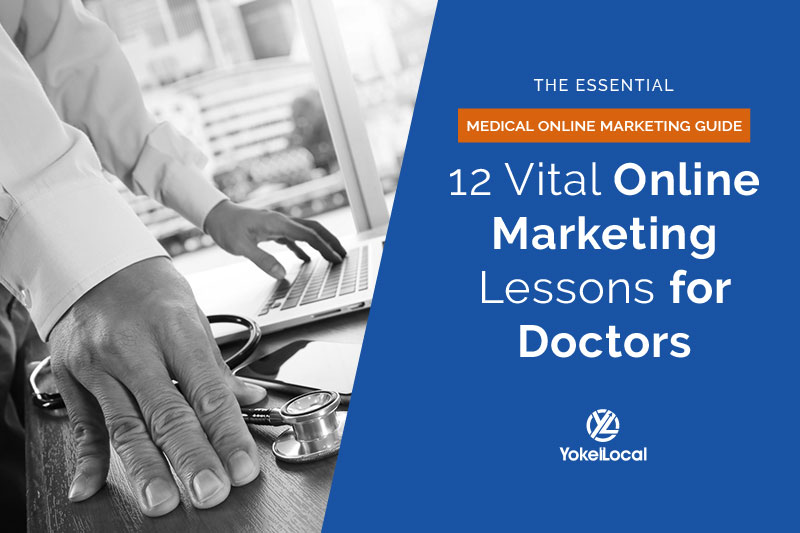Online marketing is one of the most underutilized tools for medical practices and it's easily the most misunderstood.
On the other end, patients are using the internet to discover and research healthcare providers more than ever before.
For this reason, it is essential as a medical professional you have your medical online reputation management in order.
A Google study of 20 different medical and dental practices found the following:
- 77% of patients used search engines before booking an appointment.
- 83% of patients browsed hospital websites to learn more before booking.
- 50% of patients used health information sites to research various practices.
- 26% of patients relied on consumer-generated reviews to influence their decision.
Consumers make their purchasing decision online before they step foot in a healthcare facility. This is particularly the case for elective procedures where the patient doesn't necessarily need the surgery and can take their time to find the right practice.
Also, since they're likely paying out of pocket, they want to know that their money is being well spent.
The study linked above also shows that the most significant growth in the marketing budgets for pharmaceutical, diagnostics, biotech and medical device companies, is taking place in social media, mobile app development, and digital sales materials.
Hospital providers are also shifting to digital channels to market to healthcare consumers in a way that's more effective and more convenient for their prospective patients.
Understanding Consumer Behavior to Attract New Patients
Despite the fact that healthcare is vital to society and people rely on it, you still have to treat your medical practice as a business. The difference is that you're "selling" a service that's expensive, technical, and highly personal -- which ultimately makes medical practice marketing difficult.
To get new patients, you have to understand how they shop for healthcare and get into their mindset. They don't have a network of friends and colleagues spread throughout the medical world, so they opt to do what we all do when researching something we're unfamiliar with -- head to Google.
Consumers don't even make small purchases without reading a few quick reviews, so you can rest assured they aren't selecting a dentist or plastic surgeon without doing a thorough research online.
What specific sites are your patients using? Yelp, Healthgrades, Angie's list, or something else? Find out. Poll your patients. After that, poll your staff, as well.
Related: How To Effectively Market Elective Surgery Procedures
Active Online Reputation Management for Medical Practices
Once you've compiled a list of the review sites you KNOW your patients and your staff use, start the process of getting your practice listed in those directories.
You want your brand to be everywhere that potential patients are looking -- make it easy for your patients to find you online.
In addition to review sites, you need to add your practice to Google My Business to ensure you appear in local searches within your city. You should also have a professional, modern website with a blog that's regularly updated.
Pro tip for marketing your medical practice: Make sure you have at least five positive reviews on Google My Business because Google My Business adds a higher value on businesses at that threshold and will rank your listing higher. It's vital that you keep a pulse on what's being said about you online.
One easy method is to set up Google Alerts for your business name and doctor name. That way, whenever either is mentioned anywhere online, Google will notify you via email.
Monitor your online reviews and reply to all of them -- even the negative reviews. Consumers admire transparency, especially in the medical field where it is so rare. Each case will be different, but you should accept responsibility for their dissatisfaction and offer to make amends in a reasonable manner.
If you suspect a review to be fraudulent (from a competitor or former employee), you can dispute it. However, unless it's an obvious situation where someone is abusing the system, the argument won't likely be validated.
The most important thing is being consistent and staying engaged online. Your reputation online will continue to grow, and you have the opportunity to control the direction of your online reputation by staying involved in the conversation.
And remember, the patient/doctor relationship doesn't end when they leave the office.














